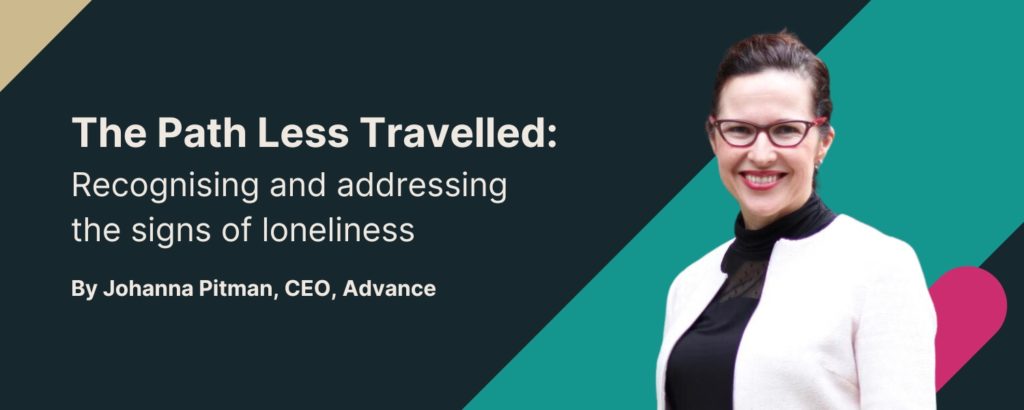
By Johanna Pitman, CEO, Advance
Living overseas can be a lonely business.
We know that global Australians often experience the excitement of new social circles, simultaneously with periods of loneliness and longing for deeper connections. Equally, returning to Australia after years overseas can cause a surge of loneliness, particularly if you feel your family and Aussie friends no longer “get you”. Even if you are surrounded by fantastic new friends and colleagues, you may struggle to find anyone you can confide in or share your new experiences with.
Loneliness is tough to pinpoint – the CDC defines it as “the feeling of being alone, regardless of the amount of social contact. Social isolation is a lack of social connections. Social isolation can lead to loneliness in some people, while others can feel lonely without being socially isolated.” In other words, you might be socially isolated, but be perfectly happy; or you might have lots of social contact and still feel lonely. It is incredibly subjective.

Feeling lonely can take its toll. It can have a negative impact on your mental health, especially if you’ve felt lonely for a long time. Research suggests that loneliness can increase stress, and it’s also associated with an increased risk of certain mental health problems (e.g. depression, anxiety, low self-esteem and sleep problems) and poorer health outcomes.

That said, it’s important to remember that loneliness is a universal emotion that many of us experience at times – because you lack companionship in your daily life, feel left out, or you’ve moved away from family and close friends. Loneliness can serve a purpose – as your body’s natural response to let you know that you feel alone, even empty, and you need to try harder to connect with others. But if your feelings of loneliness make it harder to get out and connect with others, you can find yourself in a negative spiral that leaves you defeated.

All of these responses are normal. The first step is recognising the value of the choices you have made – i.e. the benefits derived from your international move. The second step is to identify what or who you value the most… Someone to go walking with? Someone to go out with after work? Someone to go sightseeing with? By identifying the gap, you can be more deliberate in fixing it, and invest in existing contacts to fill those gaps. Finding Aussies around you might also be a great way to identify like minded individuals who are tackling similar issues.
If you are feeling overwhelmed and don’t have anyone you can speak with, Lifeline Australia’s crisis service is accessible by all Australians, including Australians living overseas. You can speak with someone in Australia anonymously via the chat service, via phone (+61 2 6261 3305), or if you are in Australia, via phone (131114) or text (0477 131114).
Remember, chronic loneliness is one of the most deadly conditions we can experience in adulthood, because it heightens the risk of cardiovascular disease, dementia, stroke, depression, anxiety, and premature death. It’s not worth ignoring the signs, and it’s important to develop strategies that work for you when you start to feel lonely. For more info about loneliness and its pervasiveness, see here.
Johanna Pitman is the CEO of Advance, the Global Australian Network. Johanna is also a volunteer telephone crisis supporter at Lifeline, and a member of the Research and Reference Committee of the Groundswell Foundation. Under the leadership of former Advance board member, Martin Blake, the Groundswell Foundation addresses the growing issue of loneliness and its impact on mental health in Australia.